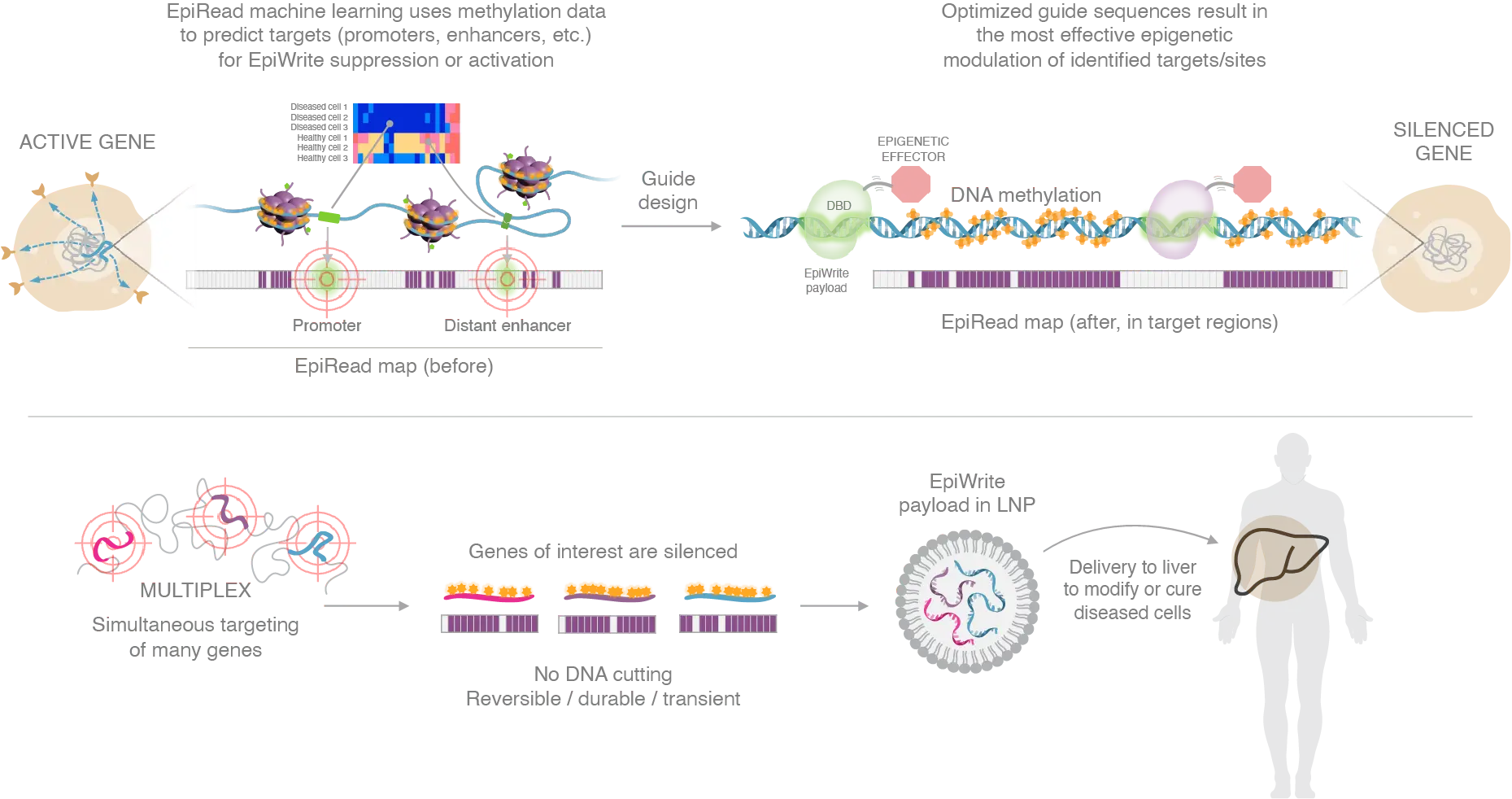Controlling epigenetic regulation of cellular states
The biology behind the cellular state
Epigenetics serves as the “software” of our genome, regulating gene expression by modifying the accessibility of genes without altering the DNA sequence itself. DNA methylation and histone modifications work together, turning genes on or off to determine their expression levels.
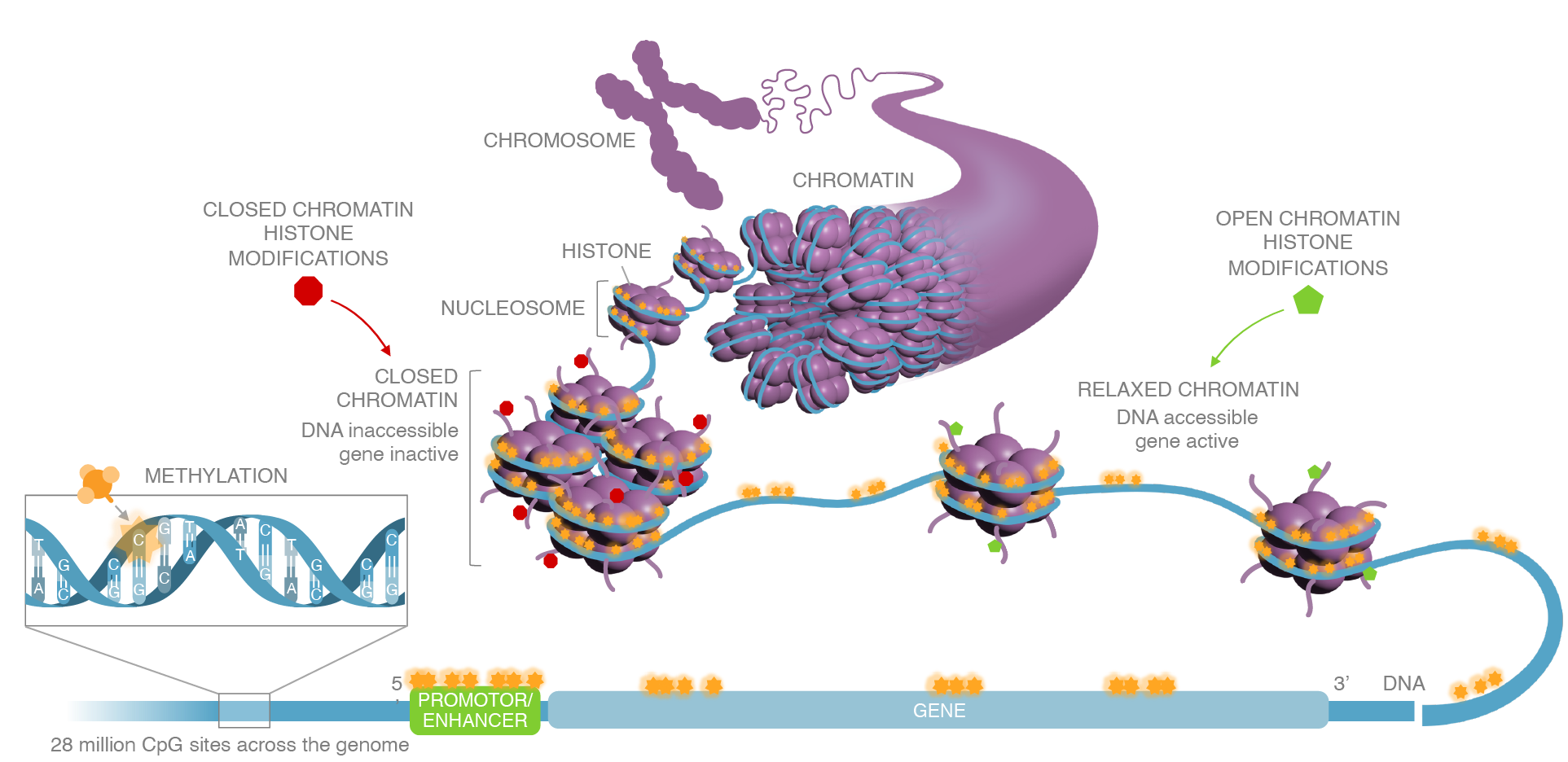
Methylation atlas of human tissue
Historical work established that DNA methylation is the program for cellular identity and function. It is an incredibly stable and conserved signal, and each cell type in the body, despite having the same DNA, has an epigenetic signature that determines its different identity and function. For example, the beta islet cell is the only cell in our body with the insulin gene turned on, even though every cell has that gene.
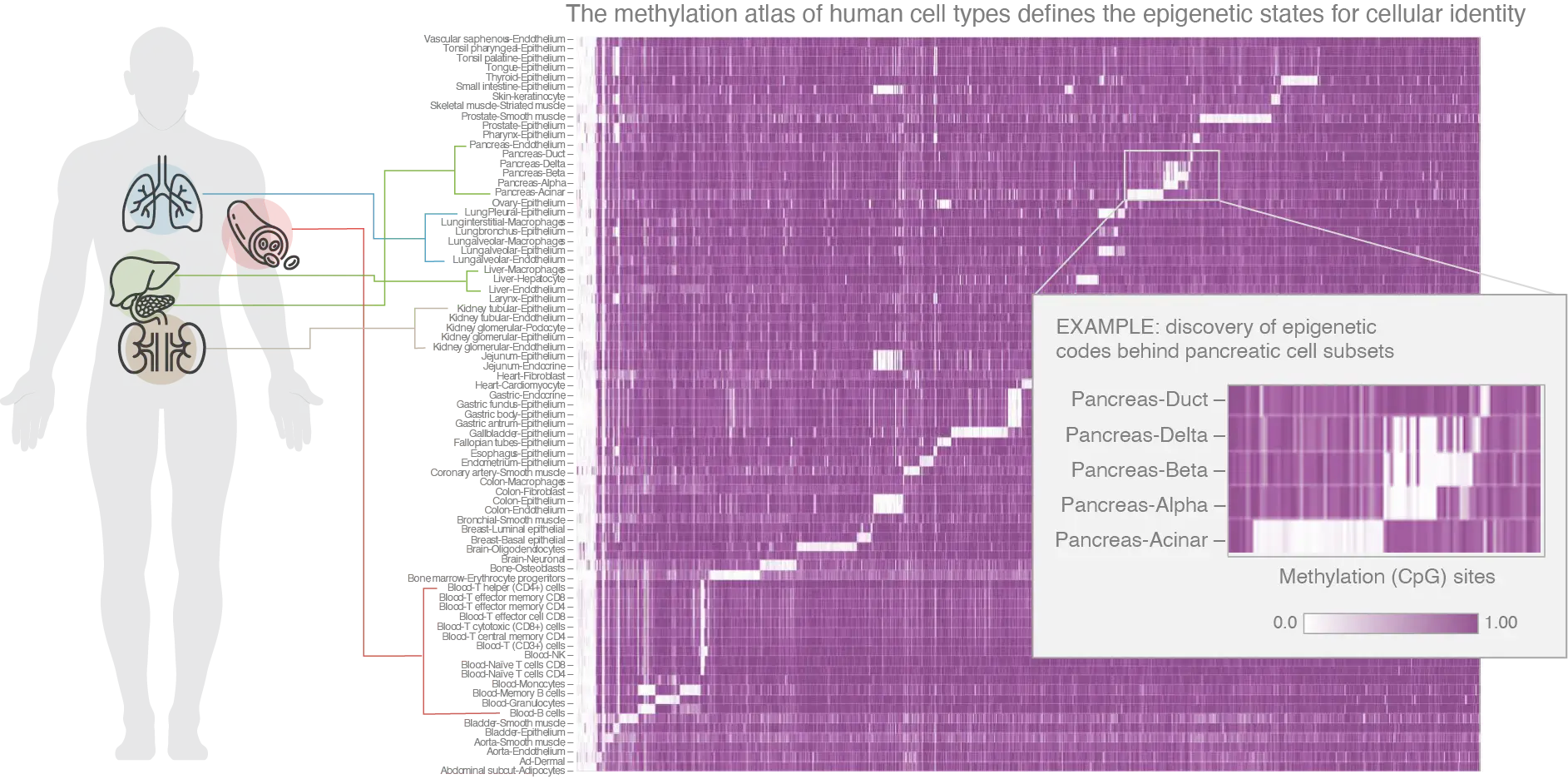
EpiRead™ Technology
Moonwalk’s EpiRead technology profiles and maps the methylome across all 28 million CpG sites in the genome at single-cell resolution. EpiRead has been used to create the first comprehensive epigenetic profiles of T cell subsets and adipocytes. This unique capability enables a deeper understanding of the biology and gene regulation between cellular states and disease vs. health. These insights can better inform therapy development for known gene targets and, with Moonwalk’s proprietary ML/AI-driven computational capabilities, enable target discovery for complex diseases.
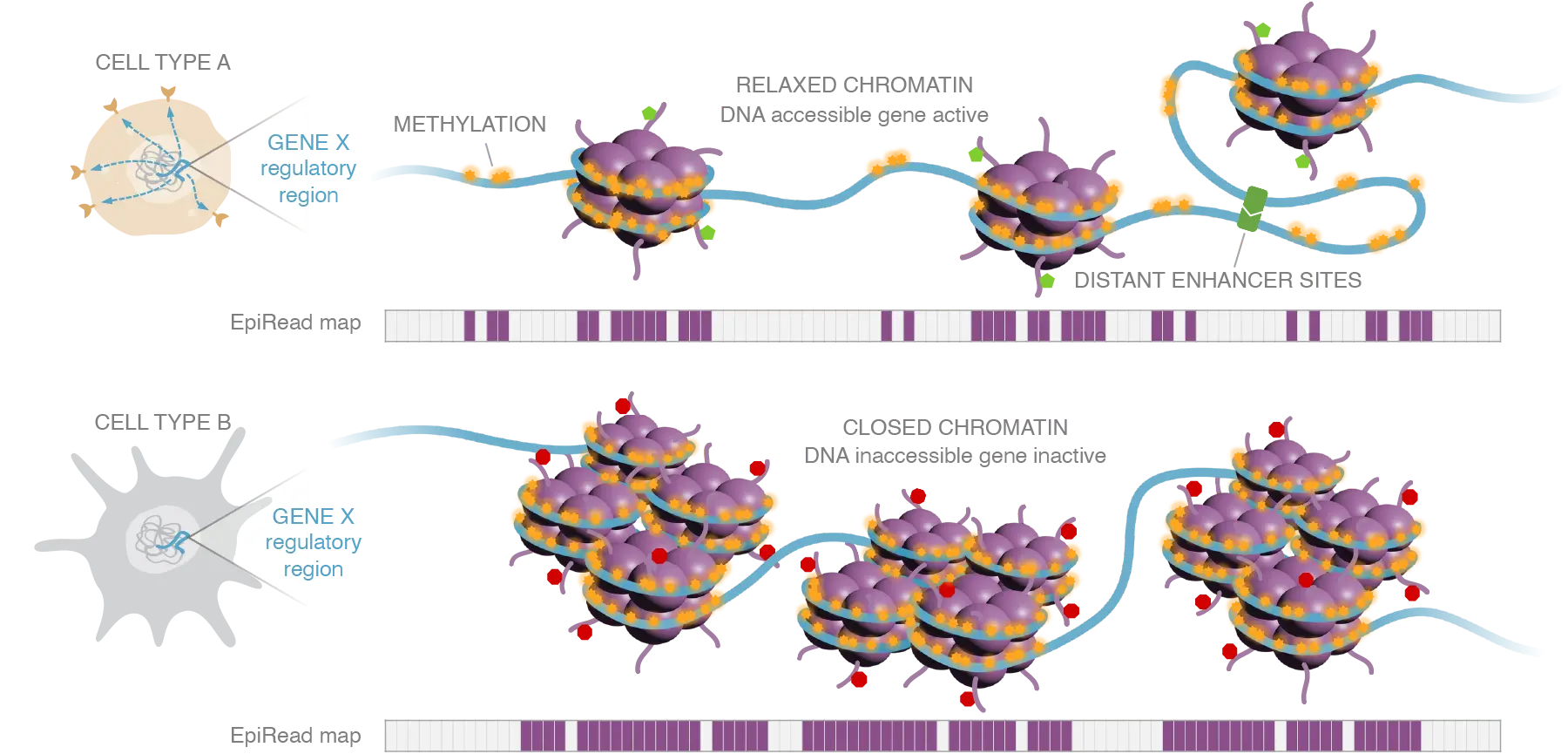
EpiWrite™ Technology
Moonwalk’s EpiWrite technology can act on EpiRead insights to activate and suppress genes in a highly multiplexed fashion. These epigenetic edits do not involve DNA cutting, and can be reversible, and durable or transient in nature. EpiWrite payloads can be delivered to target tissues by LNP, AAV, or other delivery methods.
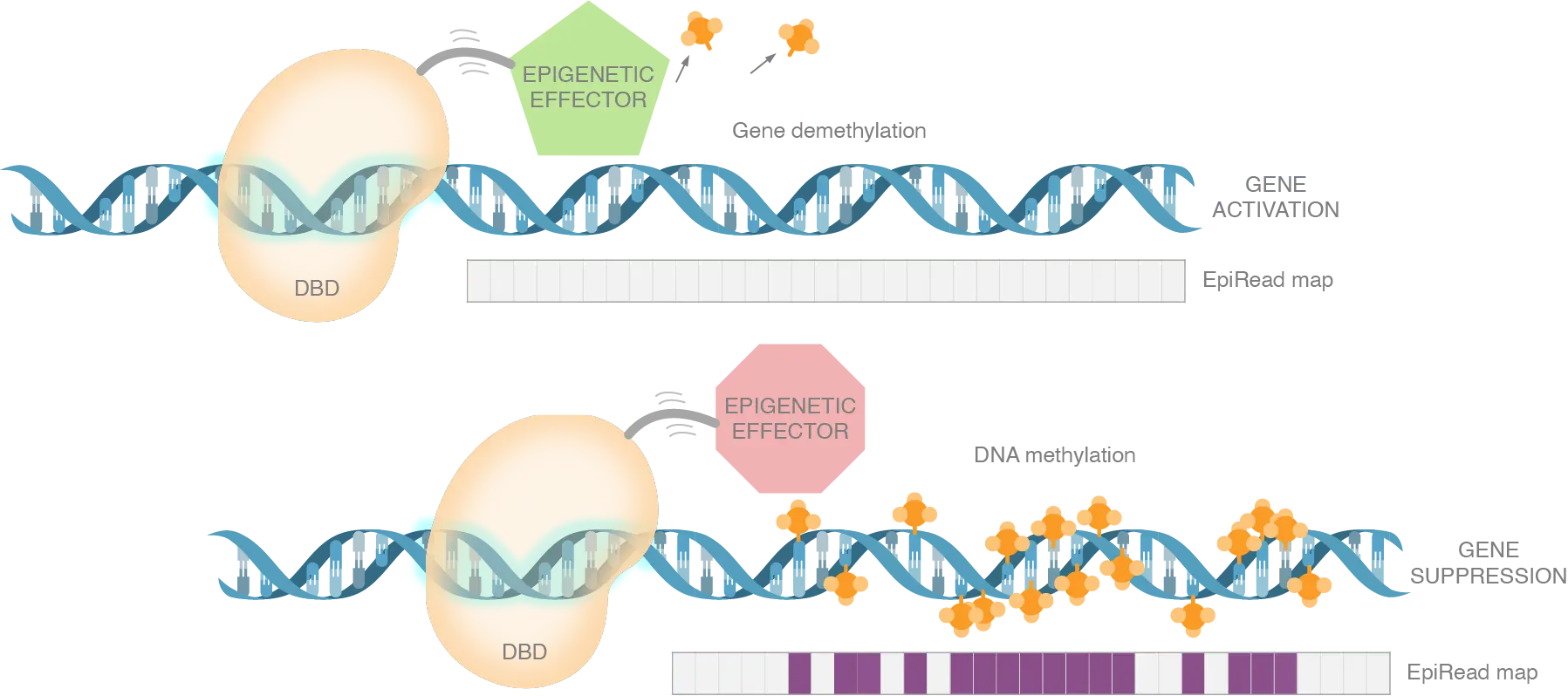
Technology In Action
EpiRead and EpiWrite in combination allows Moonwalk to engineer the epigenome by characterizing the epigenetic profile of genes of interest, optimizing guide design, performing multiplexed gene suppression and activation, and confirming specificity of epigenetic modulation to enable a new class of epigenetic medicines.
